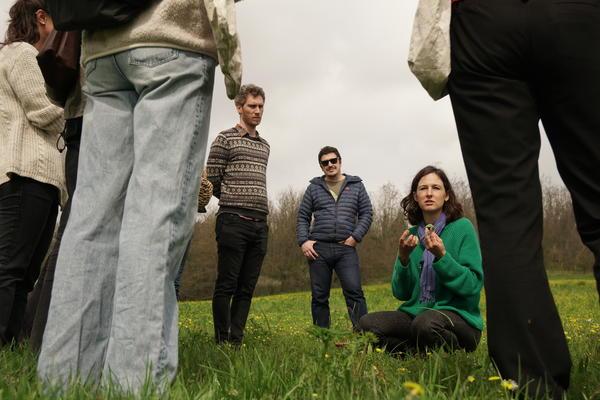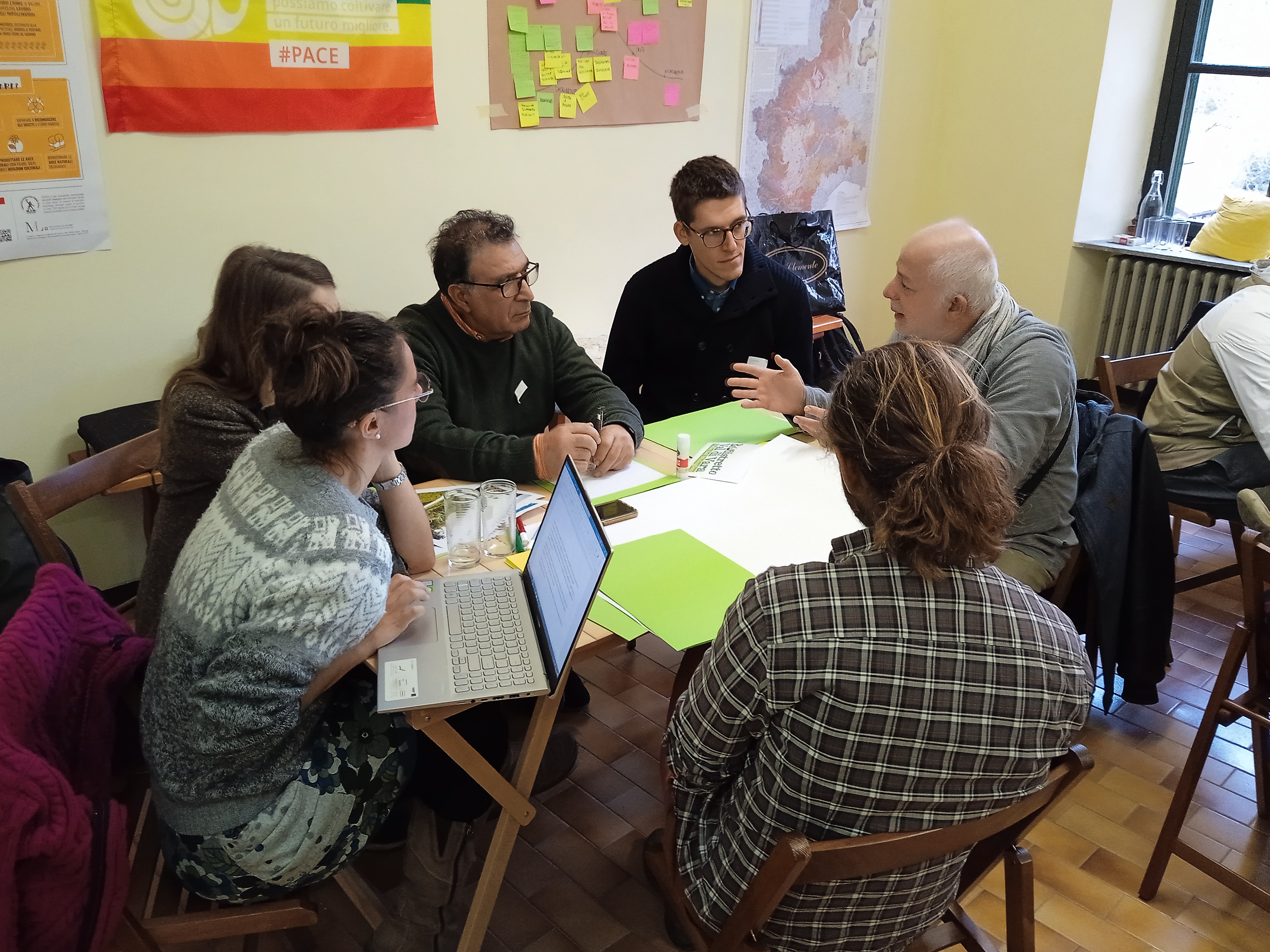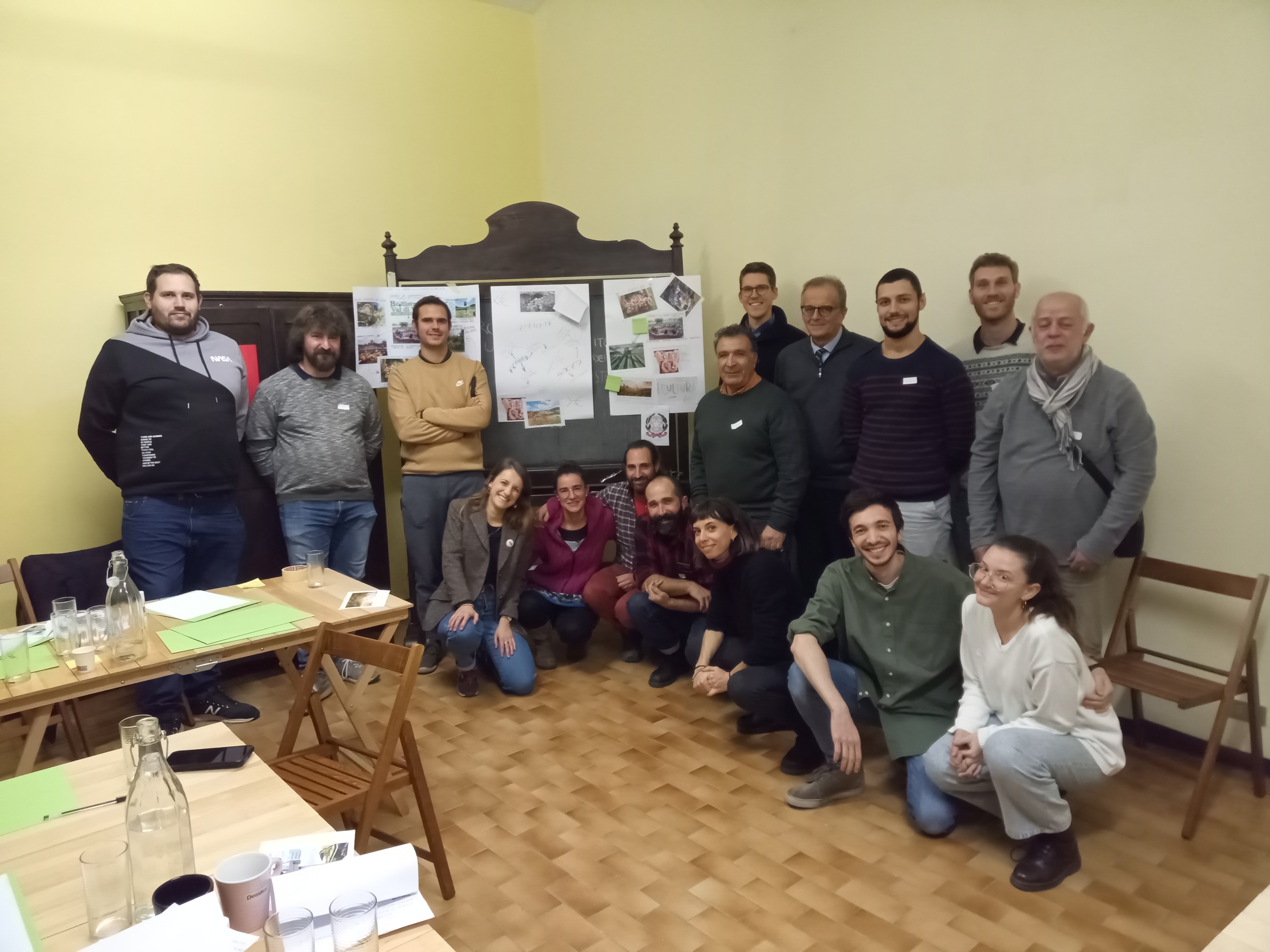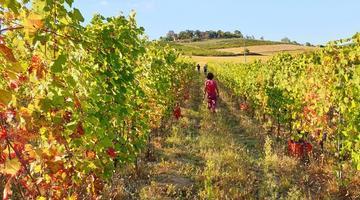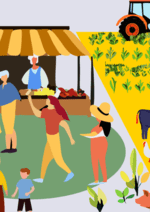Wine, bees, and beliefs: rethinking farming in Italy’s Monferrato
A farmer, an activist, a beekeeper, and a local official walk into a bar.
It sounds like the start of a joke — until you hear about ASFODELO, a small NGO in northwestern Italy and the experiment they undertook as part of the EU-funded SHARED GREEN DEAL project to develop new shared narratives in one of Italy’s most beautiful agricultural regions.
ASFODELO’s mission is grounded in community building and environmental preservation in Monferrato, a UNESCO World Heritage site known for its rolling vineyards and oak forests perfect for truffle hunting. But beneath its postcard landscape lies a complex challenge: local economic reliance on agriculture, particularly wine production, has led to widespread dependence on pesticides and intensive agricultural practices.
This is where the local experiment, called Local Change towards More Sustainable Food Production – or LOCoMOS for short – took root. As part of the SHARED GREEN DEAL’s Sustainable Food stream, the goal wasn’t simply to talk about pesticides but to challenge entrenched narratives and co-create new ones.
Monferrato, Italy
The Monferrato area is part of the UNESCO-designated Vineyard Landscape of Piedmont: Langhe-Roero and Monferrato. As UNESCO puts it, "This landscape covers five distinct wine-growing areas with outstanding landscapes and the Castle of Cavour, an emblematic name both in the development of vineyards and in Italian history. It is located in the southern part of Piedmont, between the Po River and the Ligurian Apennines, and encompasses the whole range of technical and economic processes relating to the winegrowing and winemaking that has characterized the region for centuries."
Finding Common Ground
To begin, ASFODELO mapped the local food system, identified key actors, conducted interviews to source the participants needed to support their vision of developing a new vision for local agriculture. From the outset, the team focused on engaging young changemakers already experimenting with sustainable practices and a first assembly was held in the fall of 2023.
The group used the Transition Arena method, starting with twelve participants working together to understand the problem — the first step in a series of sessions designed to build shared insight and direction. However, an early insight proved to be that something very important was missing, namely traditional farmers to ensure the discussion was covered from the full group of stakeholders.
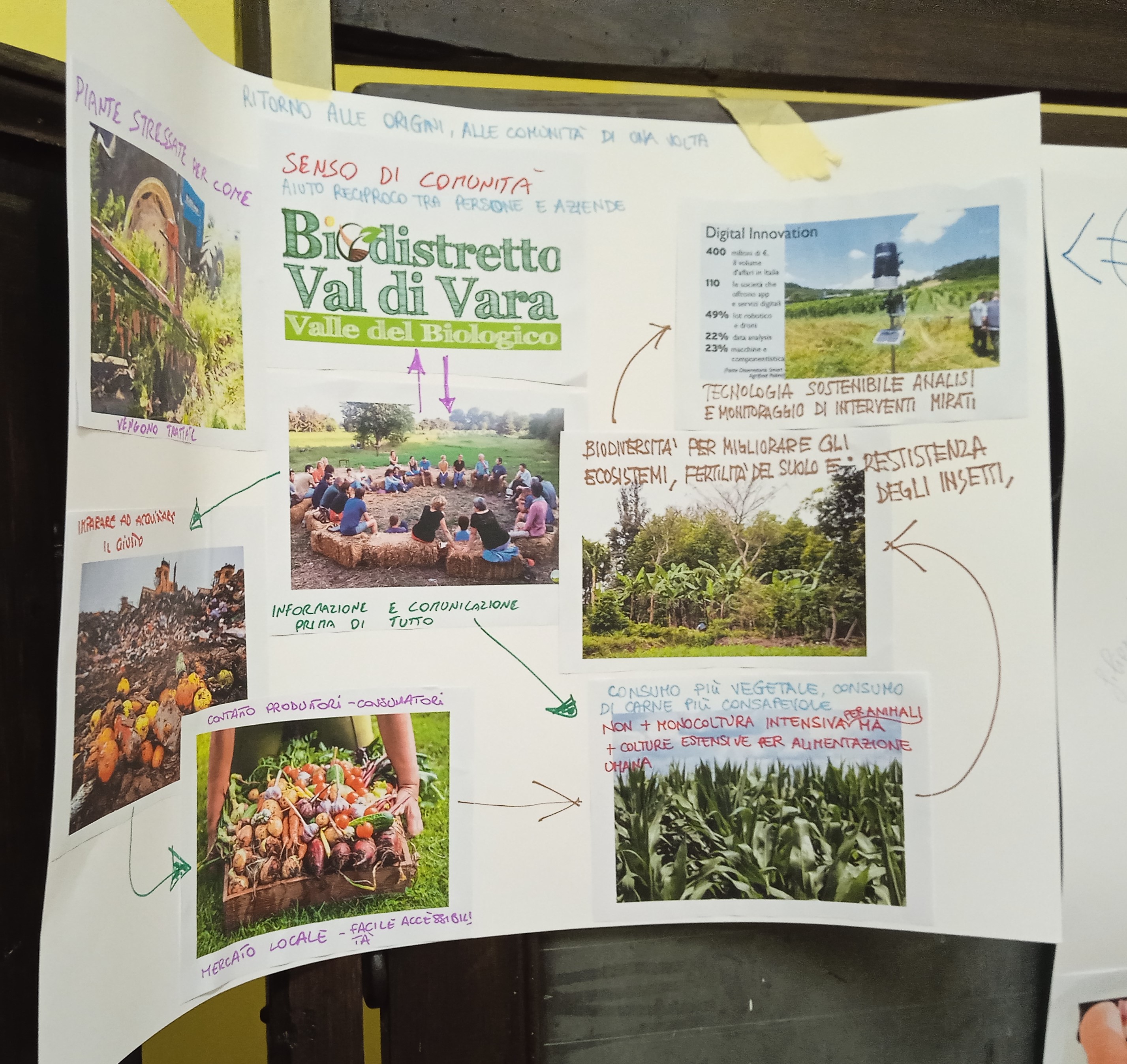
This broadened the group and the discussion for the second assembly. The farmer representation, often caught between market demands and legal constraints before personal preferences even come into play, brought in grounded perspectives. The beekeeper delegation brought forward concerns about pesticide impacts on their livelihoods, and representatives from NGOs and local government joined in, not only sharing but also listening to their fellow changemakers.
With the varied viewpoints, focus on the facilitation and structured participation was an objective for the hosts, and a space emerged where disagreement could coexist with understanding. Rather than seeking to win discussions, the assemblies allowed equal amounts of time for participants to speak and sough common ground where possible - ultimately, to build shared beliefs.
Laying New Ground
The assemblies were far from typical meetings and while while the experiment began with mapping and dialogue, its true impact was in shifting perspectives. Farmers heard directly from beekeepers about the unintended consequences of pesticides. Activists better understood the regulatory pressures that constrain growers. And through this a shared narrative began to evolve — from an abstract ideal to a locally grounded practice shaped by cooperation rather than conflict.
That said, limitations remained. The short timeline and volunteer-based participation meant that many contributors juggled LOCoMOS between other responsibilities — harvests, studies, and jobs. Still, the insights were clear: agricultural decisions are shaped not just by individual choices, but by a web of external pressures — from strict regulation (Origin, grape types, pesticide choices etc.) to gaps in support for sustainable alternatives.
In 2024, LOCoMOS may have concluded as a formal experiment, but the relationships made have not disappeared. The assemblies led to the informal formation of a local network of changemakers, already developing follow-up initiatives. These include projects around forest maintenance — tackling vegetation linked to pest outbreaks — and plans to use the methodology to develop a regenerative agriculture course for students and local farmers.
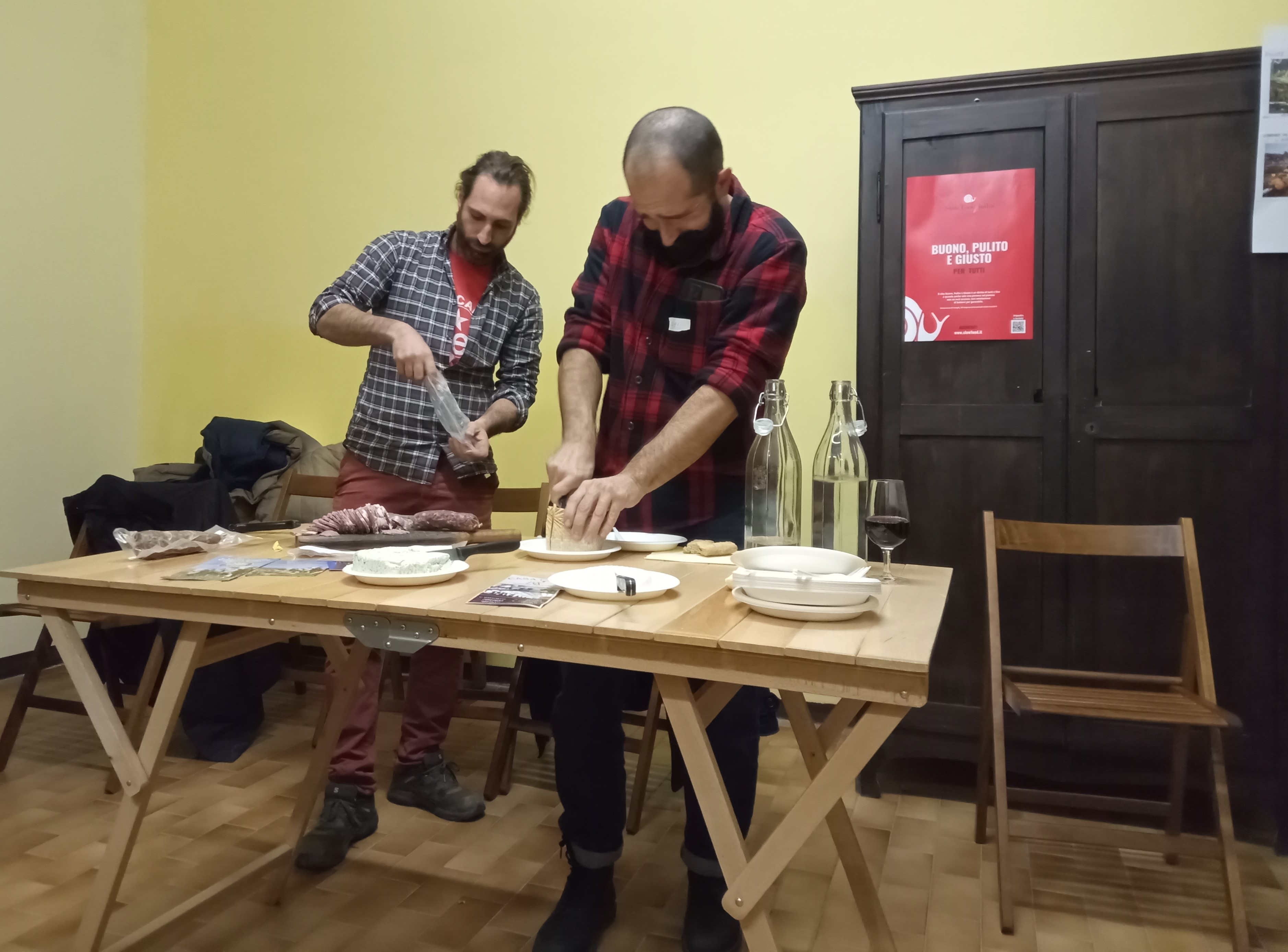
Related Green Deal Priorities
Related localities
Related events
Related multimedia
Related Resources


CONTACT
For further details please contact co-leads Professor Chris Foulds (chris.foulds@aru.ac.uk) and Professor Rosie Robison (rosie.robison@aru.ac.uk).

This project has received funding from the European Union’s Horizon 2020 research and innovation program under grant agreement No 101036640. The sole responsibility for the content of this website lies with the SHARED GREEN DEAL HAS project and does not necessarily reflect the opinion of the European Union.
